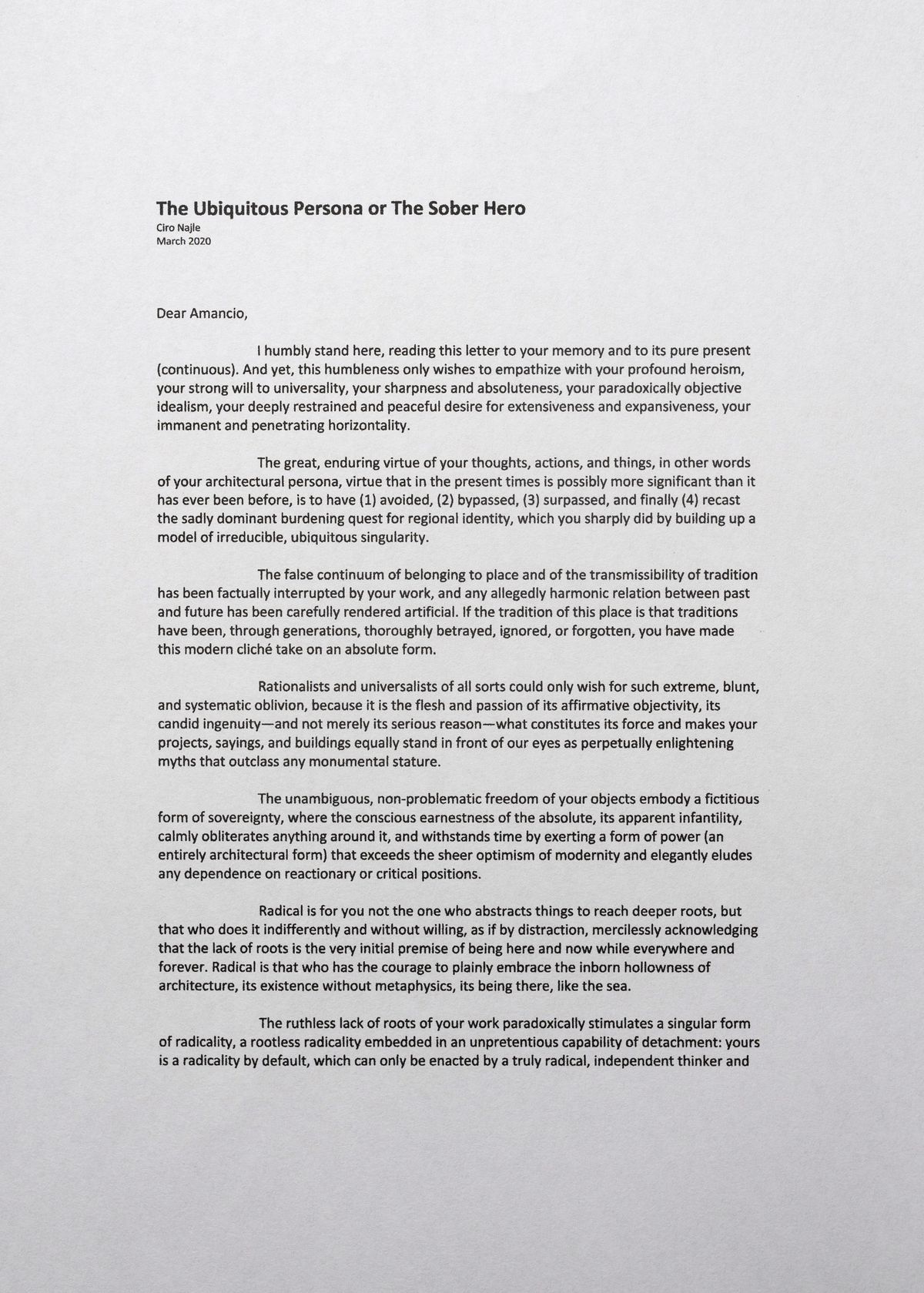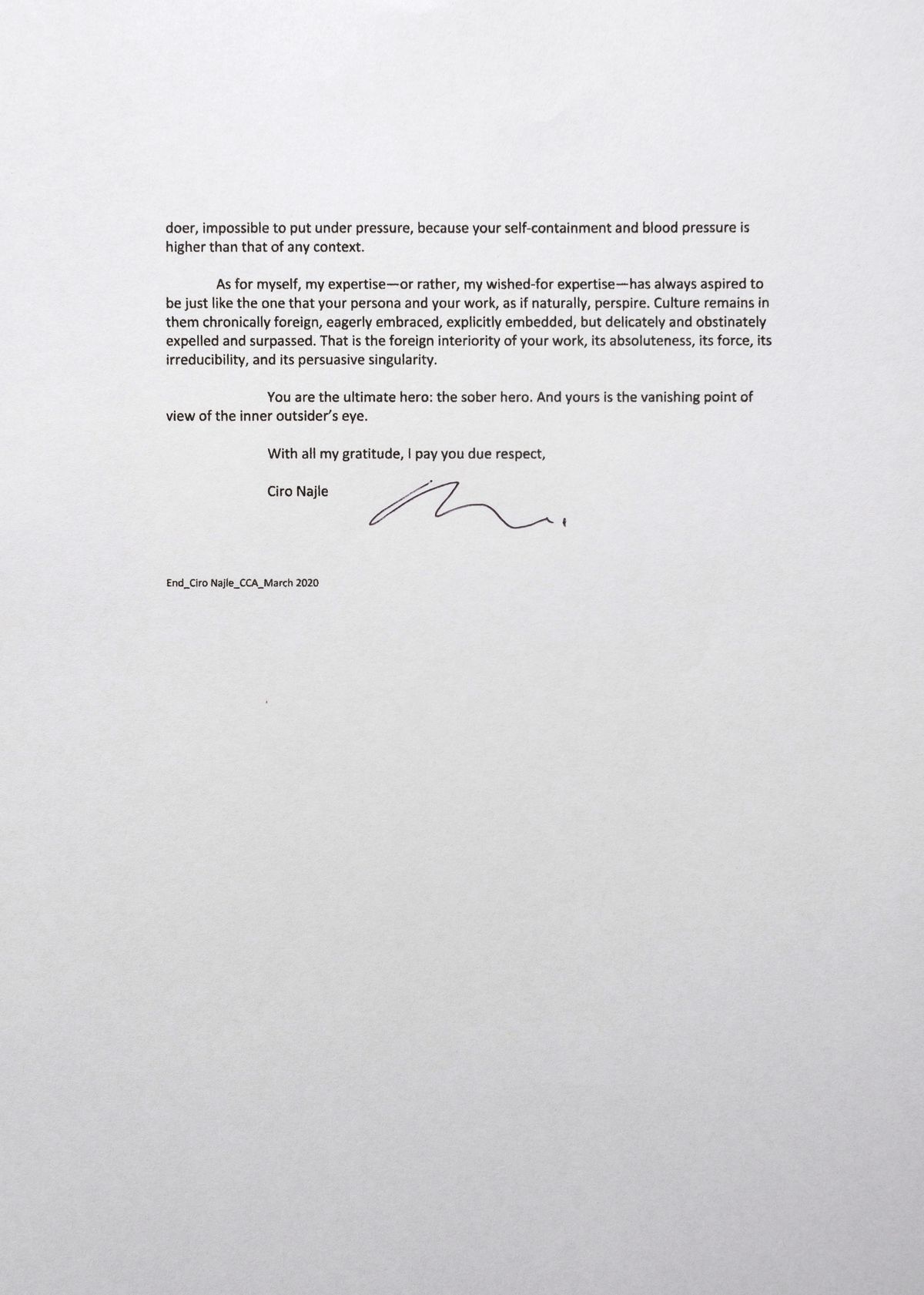I humbly stand here, reading this letter to your memory and to its pure presence (continuous). And yet, this humbleness only wishes to empathize with your profound heroism, your strong will to universality, your sharpness and absoluteness, your paradoxically objective idealism, your deeply restrained and peaceful desire for extensiveness and expansiveness, your immanent and penetrating horizontality.
The great, enduring virtue of your thoughts, actions, and things, in other words, of your architectural persona, a virtue that in the present time is possibly more significant than it has ever been before, is to have, first, avoided, second, bypassed, third, surpassed, and, finally, recast the sadly dominant, burdensome quest for regional identity, which you sharply did by building up a model of irreducible, ubiquitous singularity.
The false continuum of belonging to place and of the transmissibility of tradition has been factually interrupted by your work, and any alleged harmonic relation between past and future has been carefully rendered artificial. If the tradition of this place is that traditions have been, through generations, thoroughly betrayed, ignored, or forgotten, you have made this modern cliché take on an absolute form.
Rationalists and universalists of all sorts could only wish for such extreme, blunt, and systematic oblivion, because it is the flesh and passion of its affirmative objectivity, its candid ingenuity—and not merely its serious reason—that constitute its force and make your projects, sayings, and buildings equally stand in front of our eyes as perpetually enlightening myths that outclass any monumental stature.
The unambiguous, non-problematic freedom of your objects embodies a fictitious form of sovereignty, in which the conscious earnestness of the absolute and its apparent infantility calmly obliterate anything around it, and withstands time by exerting a form of power (an entirely architectural form) that exceeds the sheer optimism of modernity and elegantly eludes any dependence on reactionary or critical positions.
The radical is, for you, not the one who abstracts things to reach deeper roots but the one who does it indifferently and without willing, as if by distraction, mercilessly acknowledging that the lack of roots is the very initial premise of being here and now while being everywhere and forever. The radical is the one who has the courage to plainly embrace the inborn hollowness of architecture, its existence without metaphysics, it’s being there, like the sea.
The ruthless lack of roots in your work paradoxically stimulates a singular form of radicality, a rootless radicality embedded in an unpretentious capability of detachment. Yours is a radicality by default, which can only be enacted by a truly radical, independent thinker and doer, impossible to put under pressure, because of your self-containment and because your blood pressure is higher than that of any context.
As for myself, my expertise—or rather, my wished-for expertise—has always aspired to be just like the one that your persona and your work, seem to naturally perspire. Culture remains in them chronically foreign, eagerly embraced, explicitly embedded, but delicately and obstinately expelled and surpassed. That is the foreign interiority of your work, its absoluteness, its force, its irreducibility, and its persuasive singularity.
You are the ultimate hero: the sober hero. And yours is the vanishing point of view of the inner outsider’s eye.
With all my gratitude, I pay you due respect,
Ciro Najle
Buenos Aires, 11 March 2020

